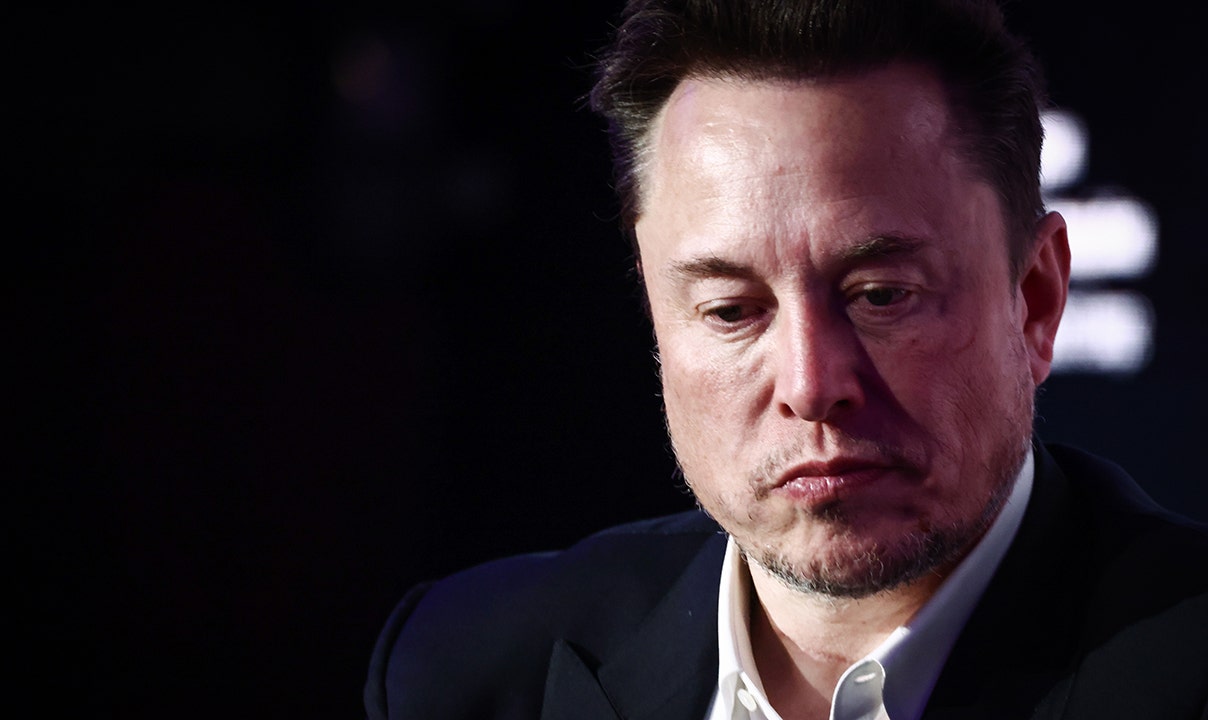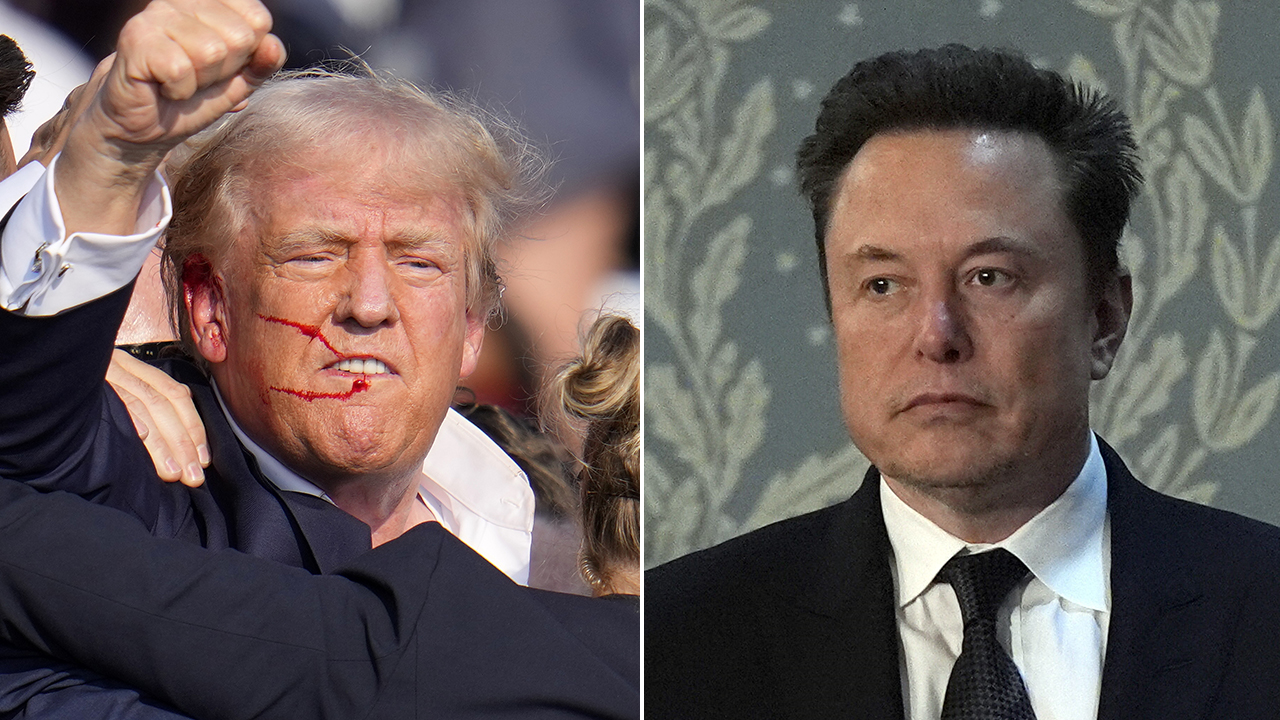Elon Musk, one of the most influential figures in modern history, has sparked numerous debates with his bold statements and futuristic visions. However, the claim that he is the "Antichrist" has taken controversy to another level. While this assertion may seem far-fetched to some, it has gained traction in certain circles, warranting a closer examination of the facts and the context behind these claims.
As the CEO of SpaceX, Tesla, Neuralink, and other groundbreaking ventures, Elon Musk has redefined industries and inspired millions. His relentless pursuit of innovation and ambition to colonize Mars has positioned him as a visionary leader. Yet, with fame comes scrutiny, and conspiracy theories often emerge in the shadows of greatness.
This article delves into the controversial claims surrounding Elon Musk and the "Antichrist" narrative. By exploring the origins of these allegations, analyzing the evidence, and providing a balanced perspective, we aim to separate fact from fiction. Join us as we uncover the truth behind these sensational claims.
Read also:Does Clint Eastwood Support Kamala Harris A Comprehensive Analysis
Table of Contents
- Elon Musk: A Brief Biography
- Understanding the Antichrist Theory
- Elon Musk's Controversial Claims
- Evidence and Analysis
- Religious Perspective on the Antichrist
- Conspiracy Theories Surrounding Elon Musk
- Public Reaction and Media Coverage
- Expert Opinions and Academic Insights
- Future Implications of These Claims
- Conclusion: Fact or Fiction?
Elon Musk: A Brief Biography
Early Life and Career
Elon Musk was born on June 28, 1971, in Pretoria, South Africa. From a young age, he exhibited an extraordinary intellect and a passion for technology. After emigrating to Canada and later the United States, Musk co-founded PayPal, which became a cornerstone of modern online payment systems.
Biodata
| Full Name | Elon Reeve Musk |
|---|---|
| Date of Birth | June 28, 1971 |
| Place of Birth | Pretoria, South Africa |
| Education | University of Pennsylvania (BS in Physics and Economics) |
| Occupation | Entrepreneur, CEO, Engineer, Inventor |
| Net Worth | $280 billion (as of 2023) |
Understanding the Antichrist Theory
The concept of the Antichrist has roots in religious texts, particularly in Christianity. It refers to a figure who will deceive people and oppose God in the end times. Over the centuries, various individuals have been labeled as potential Antichrists due to their actions or perceived influence.
Historical Context
Throughout history, leaders, innovators, and even scientists have been accused of embodying the Antichrist. The rise of technology and globalization in recent decades has fueled new interpretations of this ancient prophecy.
Elon Musk's Controversial Claims
Elon Musk's statements and actions have often been scrutinized for their potential implications. His ambitious projects, such as Neuralink and Starlink, have raised concerns about privacy, ethics, and the future of humanity.
Key Controversies
- Neuralink and brain-computer interfaces: Critics argue that these technologies could lead to mind control or loss of individuality.
- SpaceX and colonization of Mars: Some believe Musk's focus on space exploration diverts attention from Earth's pressing issues.
- Tesla and artificial intelligence: The integration of AI in autonomous vehicles has sparked debates about job displacement and safety.
Evidence and Analysis
When examining the claims that Elon Musk is the Antichrist, it is crucial to analyze the evidence objectively. While some aspects of his work may appear dystopian, they are often rooted in scientific and technological advancements.
Scientific Perspective
Experts in neuroscience, space exploration, and artificial intelligence emphasize the potential benefits of Musk's innovations. They argue that these technologies aim to improve human life rather than harm it.
Read also:Kannada Movie Rulz 2025 The Ultimate Guide To The Future Of Kannada Cinema
Religious Perspective on the Antichrist
From a religious standpoint, the Antichrist is often associated with deception and false promises. While Elon Musk's achievements are undeniable, his intentions and moral compass remain subjective to interpretation.
Interpretations of Prophecy
Religious scholars debate whether modern figures can truly embody ancient prophecies. They caution against jumping to conclusions based on superficial similarities.
Conspiracy Theories Surrounding Elon Musk
The internet is rife with conspiracy theories about Elon Musk, ranging from his alleged ties to secret societies to his role in shaping a dystopian future. These theories often lack credible evidence but gain traction through social media.
Common Conspiracy Themes
- Secret global agendas
- Control over financial systems
- Manipulation of public perception
Public Reaction and Media Coverage
The public's reaction to Elon Musk's work is divided. While many admire his vision and contributions, others express skepticism and fear about the long-term consequences of his projects. Media coverage plays a significant role in shaping these perceptions.
Media Influence
Journalists and influencers often amplify controversial narratives, sometimes without thorough investigation. This can contribute to misunderstandings and misconceptions about Musk's intentions.
Expert Opinions and Academic Insights
Academics and industry experts provide valuable perspectives on Elon Musk's work and its implications. Their insights help contextualize the controversies and offer a balanced view.
Key Takeaways from Experts
- Musk's innovations have the potential to address global challenges.
- Regulation and ethical considerations are essential for responsible development.
- Public discourse should focus on constructive dialogue rather than fear-mongering.
Future Implications of These Claims
As technology continues to evolve, the debate surrounding Elon Musk's role in shaping the future will persist. It is crucial to approach these discussions with critical thinking and a commitment to truth.
Potential Outcomes
Future developments may clarify the impact of Musk's work on society. Collaboration between innovators, policymakers, and the public can ensure that technological progress aligns with ethical standards.
Conclusion: Fact or Fiction?
In conclusion, the claim that Elon Musk is the Antichrist remains speculative and lacks substantial evidence. While his projects raise important ethical questions, they also hold the promise of transforming the world for the better. It is essential to engage in informed discussions and avoid succumbing to unfounded fears.
We invite you to share your thoughts in the comments section below. Feel free to explore other articles on our website to gain deeper insights into related topics. Together, let's foster a culture of knowledge and understanding in an ever-changing world.
References:


